Bioware is a veteran western developer that many fans of tabletop fantasy RPGs have long respected. They were the guys behind the Baldur’s Gate franchise, they translated the third edition of Dungeons & Dragons perfectly into Neverwinter Nights, and they even gifted Star War fans with the special touch of Knights of the Old Republic. If there was a team that knew how to make a pen-and-paper game into an enjoyable video gaming experience, these were your guys.
As the seventh generation of consoles bloomed, however, Bioware took a risk. They’ve left the intellectual property of Dungeons & Dragons behind and tried their hand into mixing everything they had: the RPG nature of Neverwinter Nights, the futuristic landscape of Knights of the Old Republic, the interactiveness of Jade Empire. A big soup that culminated with the first game of what would become the Mass Effect Trilogy.
The original Mass Effect, released in 2007, was a surprising hit. Combining a cover-based third-person shooter with RPG elements and an extensive focus on dialogue and choices, the game garnered positive reviews and instantly became a classic, a model upon which Bioware could work for the next two installments.
Mass Effect succeeded because it managed to hit two audiences with one game. On one hand, it was still a Bioware’s game, filled with dialogues, an intriguing scenario, and impressive characters. On the other hand, this was a cover-based shooter that ditched away the complexity of managing parties and reading dozens of lines of text explaining how the game worked. In retrospect, Neverwinter Nights had a thick manual that basically explained the Dungeons & Dragons ruleset in its entirety. Most games from Bioware were like that, heavy on rules and numbers, things that pleased pen-and-paper RPG fans, but certainly kept away everyone else.
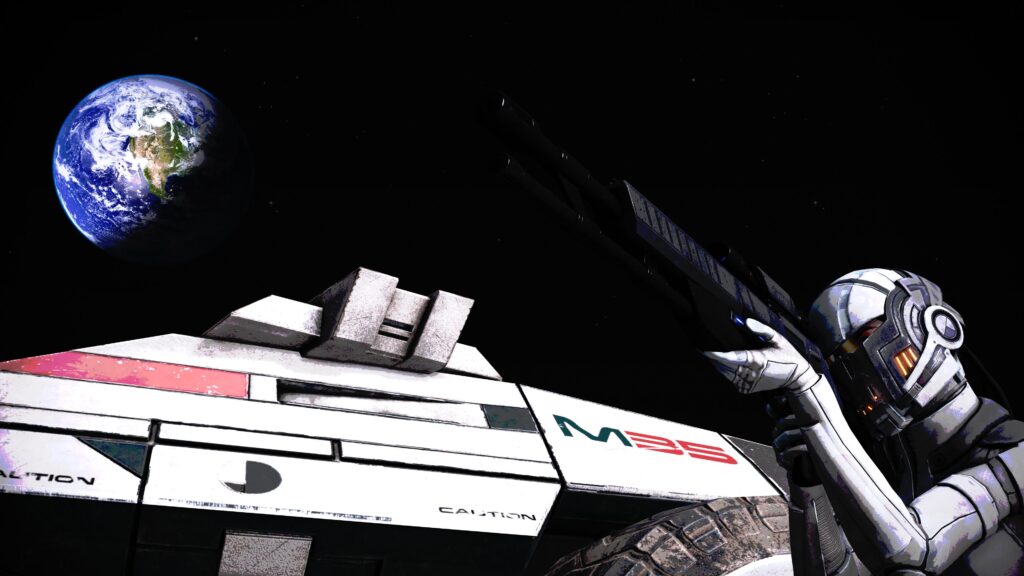
The First Game
The Mass Effect Trilogy may have plenty of widespread spoilers, but it is important to know how well it worked beyond the shift from Bioware’s old-school RPGs to a more action-heavy experience.
The first game was a big unknown. As you took the role of Commander Shepard, you knew basically nothing of this setting, a blank slate upon which every dialogue gave you new information and helped you see the big picture. The start of the first game puts you in touch with the Spectres, with the villain Saren, and with the politics of The Citadel, the social hub of the galaxy where every kind of alien would cooperate with one another.
Bioware’s first chapter was an incredible introduction. It started small in scope and smartly added layer after layer of new characters, new places, new terms, and new developments. Commander Shepard would soon rise in the ranks of galactic order and become the galaxy’s hope to challenge a much larger and dreadful foe than you could predict. You thought the villain was Saren? Ha-ha-ha.
This introduction to a setting and an overarching tale was a big gamble. If the first game flopped, we would have one of the biggest teases in video game history left unfinished. The game succeeded though, and the story of Commander Shepard continued.
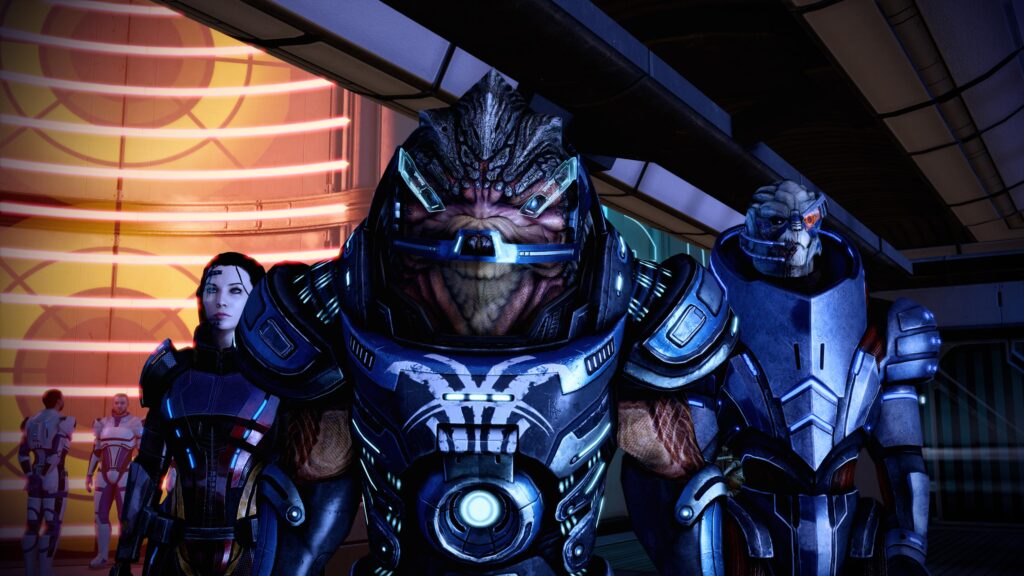
The Trilogy
Although the first game still had plenty of traditional RPG elements, such as a dense equipment management, upgrades for weapons and armors, a few dozen skills, and a slower-paced combat, these things were mostly absent in the second entry. Doubling-down on the action aspect and dialogue choices, Mass Effect 2 could easily be the reason for old fans of the developer get angry at. It was not though.
The second game ended up being the most respected and outstanding game in the trilogy. The visuals were much better, the dialogues became even more important, and the entire structure of the game gave such a focus on its characters that it became a classical representation of the Bioware of the seventh generation. Out were the complexities of RPG elements. Many were the refinements in the cover-based shooter aspects, speed was brought to movement and combat, redundant abilities were removed, the focus was set on exploring dialogues with your allies and interacting with them. All of that became the real blueprint of the new Bioware and cemented Mass Effect as a franchise that could see glory for many years ahead.
In an even more surprising way, the final chapter of the trilogy, instead of keeping up with the removal of RPG elements, decided to go back to it. Mass Effect 3 once again increased the depth and usability of the game’s powers, added layers of customization to your party and your equipment, and once again tackled some sort of inventory management. It was all better though, a perfect balance between what the first two entries achieved, making the hordes of bugs and glitches feel secondary to what was happening to Shepard’s epic tale.
Mass Effect 3 saw the end of the trilogy, a final chapter to Commander Shepard’s legend and a conclusive point in the world that became loved by fans. It was time to move on, explore other realms in this legacy, see new characters, new tales, new romances, and new worlds.
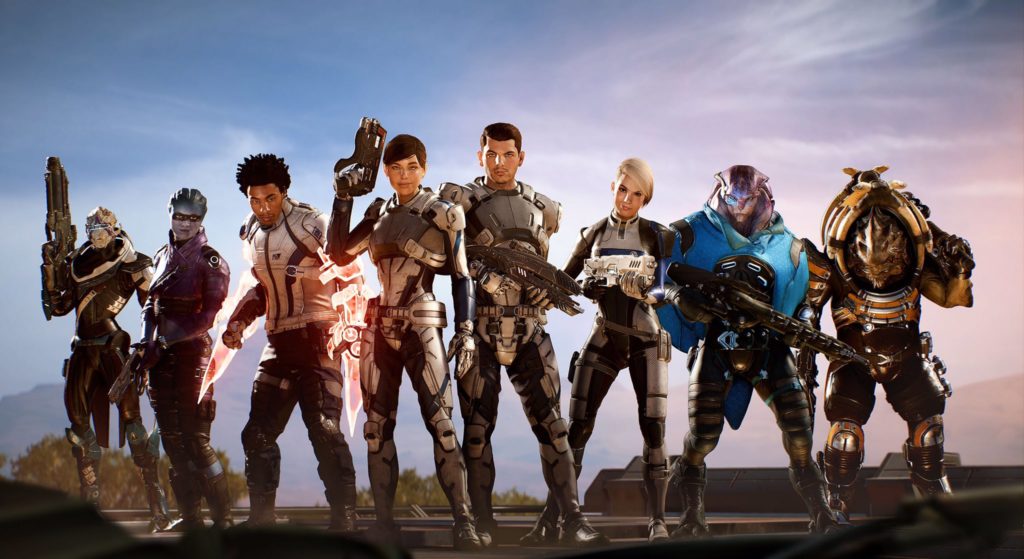
Andromeda
However, instead of continuing, Bioware seemed afraid of messing up the incredible universe they’ve created. Instead of canonizing an ending to the trilogy and telling us a new story with new perspectives, they used a cowardly trick to create the next Mass Effect.
Mass Effect: Andromeda, instead of taking part in the world where Commander Shepard lived, traveled far away to another Galaxy, a clean slate that any writer could work upon without the fear of “making fans angry” by setting canon decisions to the previous trilogy. In Andromeda, Bioware used the races and terms of the franchise, as well as game mechanics, but it could do anything they wanted… it could work, surely, but that was not what fans were expecting.
In a way, the scope of a whole new galaxy to explore was unfulfilled in Mass Effect: Andromeda. It’s messy release, swarmed by bugs and ugly faces, did not help either. It was a disaster that almost doomed the franchise. However, as I pointed out in my review of this game, it was much more about momentum than real quality. Mass Effect: Andromeda played better than any other Mass Effect, it was the apex of its combat and class system, with charming characters and a world that got interesting later on. It was just not what people wanted or expected.
The Next Mass Effect
Fortunately, the love for the franchise seems enough for Electronic Arts to give a chance for a trilogy remaster and a new entry, officially making Mass Effect: Andromeda a spin-off as it should be.
It’s hard to know what to expect from the next game. The teasers were short and mysterious, but at least we know that Bioware finally had the guts to give a canon ending to the trilogy and move on in a world that was home to the epic Commander Shepard.
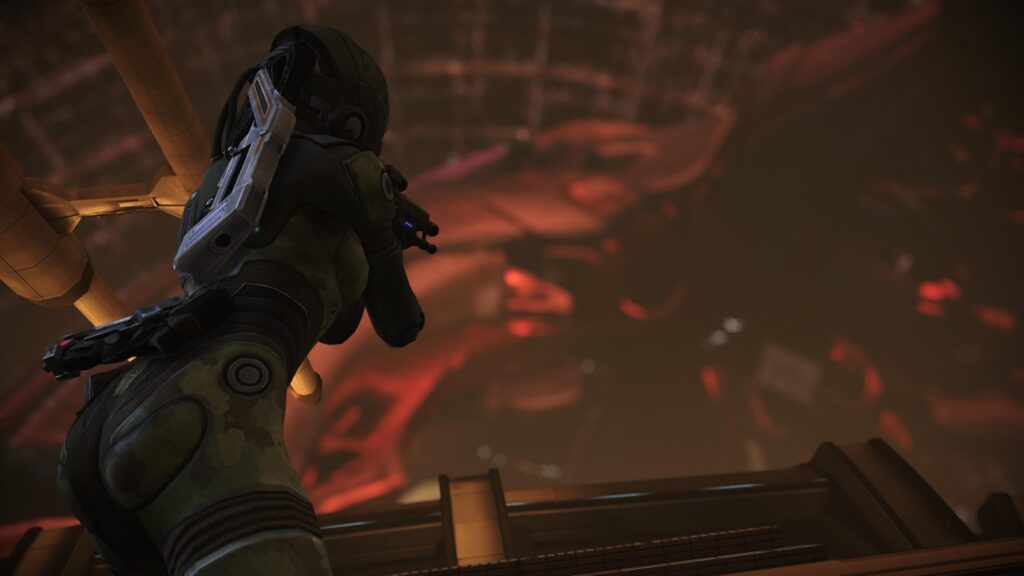
Which games to play?
That’s simple. Mass Effect’s trilogy is a linear tale, so you should start at the beginning. The Legendary Edition is perfect for that. The first game, which was a bit clumsy and had not aged that well, was drastically improved in the remastered version, with quality assets, minor adjustments to gameplay, and an overall aesthetic presentation that feels on the same level of the other two installments, if not even higher.
In a way, the remastered version of the first game serves to prove that it was always on par with the outstanding Mass Effect 2 and the final chapter of the trilogy, it only needed some make up and minor tweaks to show it.
You could, theoretically, begin at Mass Effect 2 and play the comic-like introduction to events of the first game. It’s not something I’d advise though. The first Mass Effect not only is a superb introduction to this universe, but it’s also just long enough to please you. You are looking for a short game, which can hardly last more than 30 hours for completionists and could take about 10 hours for those only interested in the main story.
Mass Effect: Andromeda may be a spin-off, but it’s better to be played last. It’s amazing combat and class system may be better than in the trilogy, but it’s a big departure from what made the trilogy shine in every other aspect. The open-world structure, the lesser side-quests, and Ryder as protagonist fail to meet that same standard set by Commander Shepard and the quirky and funny side quests you could take in the Citadel and around the Milky Way. Don’t skip it though, it’s still a great game and with a charming cast of characters.
The Controversies
Although the franchise is widely loved by fans, of course there’s some negative buzz coming from people on the internet. The most prominent is about Mass Effect: Andromeda and its hordes of release issues. I have my review explaining why we shouldn’t be that harsh with the game and also noting that playing it today is much better, but I can’t stress enough that the game does a great job with Bioware’s lovable characters and an incredible gameplay. It’s just not Mass Effect 4.

Another big controversy involves Mass Effect 3 and its ending, which is quite a demonstration of how people grow impossible expectations and usually react with unnecessary anger when they are not given exactly what they wanted.
The fact is: the Mass Effect trilogy has a LOT of tough choices that Commander Shepard must take. Throughout the games you will decide if an entire species is doomed to extinction, you will determine if some of your allies live or die, if you will save the ruling body of the galaxy or not, if you will solve ancient racial conflicts or leave them be, and much much more. It’s a lot, and these decisions usually result in pretty amazing consequences within the games where they are made.
People, however, wanted each and every decision they made during this trilogy to have an impact on the overall ending of the game too, which is just ridiculous. It would require the final game to be so open and varied that development for it would be perhaps the biggest undertaking in the gaming industry by that time. It was not feasible. Mass Effect was not selling like Grand Theft Auto V to give Bioware the budget to do such a massive project.
When the game was released and the ending was locked to a few predetermined choices, some fans got angry, very angry. Mass Effect 3’s ending was bashed in every corner, with people complaining about their minutia of choices not having an effect on the overall ending, regardless of whether those choices already had ingame effects throughout the games. The very ending was never ever supposed to be this grand open thing where we had 8134093 possibilities based on the player’s choice. It’s a story that is written and has a clear beginning, middle, and end.
Maybe another issue that helped create this widespread anger towards Mass Effect 3’s finale was the fact that the game is simply much more broken than the second entry. Ugly facial expressions, clumsy animations, tons of clipping issues and bendable necks. The game is swarmed by these issues much like Mass Effect: Andromeda is. However, because it’s the highest level journey of Commander Shepard, people were okay to overlook those and praise everything else. Maybe this channeled the anger towards an ending that wasn’t exactly what each person wanted for their very specific choices.
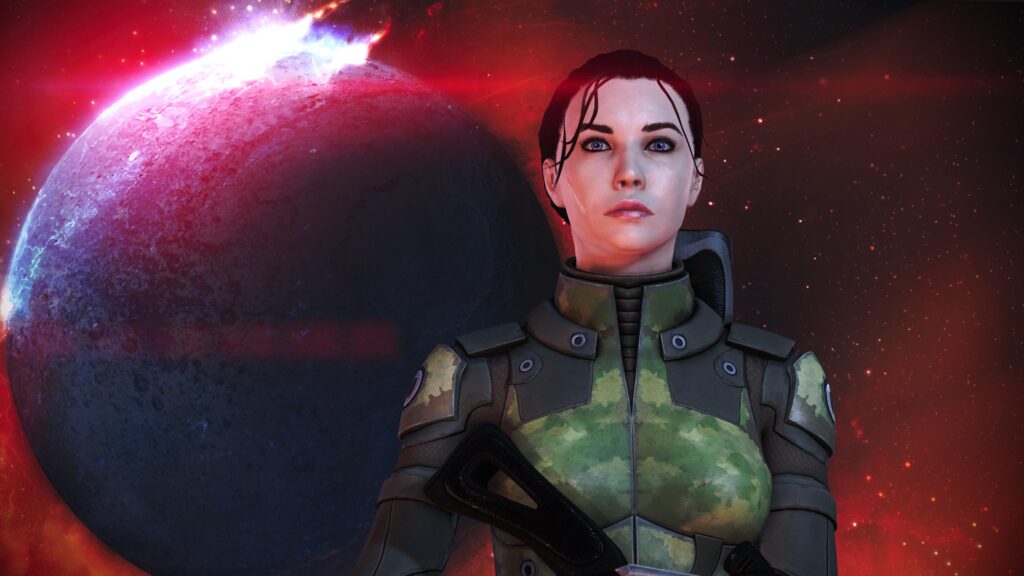
The Legacy
Mass Effect is, in my opinion, the most impressive new IP of this century. It’s a game that manages to mix genres in a perfect balance, offering something that many can enjoy. Of course, it’s focus is on dialogue choices and impressive characters, but it has action-based combat with plenty of tactical options, it has tons of customization opportunities, it offers an open-ended slate of quests to take in any order you want, and it’s done with an impressive visual presentation. Mass Effect 2 is still stunning to look at even today.
Sadly, Bioware was shaken by its relationship with Electronic Arts. The development cycle of Dragon Age 2, Dragon Age: Inquisition, Mass Effect: Andromeda, and most likely Mass Effect 3 too had some scars that can’t be exactly healed. Despite all these games being superb and some even masterpieces, they were never meant to be popular and reach audiences that the EA executives wanted them to reach.
Mass Effect: Andromeda, and Anthem in its wake, are perfect examples of what corporate greed and its clash with creative vision and development can do to harm even the most critically acclaimed games in the industry.
We can only hope that the new Mass Effect game will be once again a vision of incredible game developers and their love to explore this universe filled with choices, romances, annoying fanboys, punchable journalists, and ass-kicking. The Mass Effect franchise deserves that.
